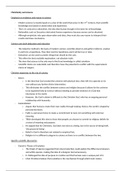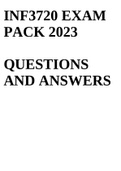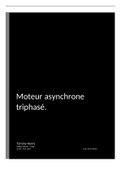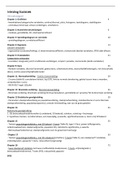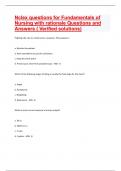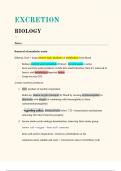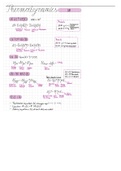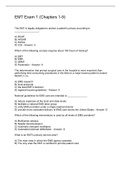Christianity and science
Emphasis on evidence and reason in science
- Modern science is mostly based on a view of the world that arose in the 17 th Century, that scientific
knowledge was based on observation and experience.
- This is in contrast to rationalism, the idea that human thought is the basis for all knowledge.
- Rationalists such as Descartes mistrusted human experience because senses can be deceived.
- Although empiricists rely upon observation and data, they must also use reason to interpret their
results and draw conclusions.
Science uses both deduction and induction
- The inductive method is the basis of modern science, scientists observe and gather evidence, analyse
it and form a hypothesis. They then test the hypothesis and it will be true or false.
- Deduction can be used to predict things that should be the case.
- This offers the best available explanation, not absolute truth.
- The view that science is the only way to find true knowledge is called scientism.
- Scientific claims are naturalistic and therefore have the potential to conflict with the supernatural
claims of religion.
Christian responses to the rise of science
- Deism
o Is the idea that God created the universe with physical laws, then left it to operate on its
own without any further divine intervention.
o This eliminates the conflict between science and religion because it allows for the universe
to be explained fully by science without needing to provide evidence of a God that
intervenes in the world.
o However, the God in deism is different to the Christian God, who has an ongoing personal
relationship with humanity.
- Existentialism
o Argues that humans create their own reality through making choices, the world is shaped by
personal decisions.
o Faith is a personal choice to make a commitment to God, not something with external
meaning.
o Tillich developed this view to show that people can choose to commit to religious beliefs for
a sense of meaning and purpose.
o He argued that for Christians, God does not exist as a being, but is the source of being itself,
‘the ground of being’.
o Belief in God in therefore not related to empirical fact.
o Religion is in a different category to science so there is no conflict between the two.
Specific scientific discoveries
- Darwin’s Theory of Evolution
o The Origin of Species suggested that natural selection could explain the differences between
and within species, making the idea of a designer God unnecessary.
o It challenged the idea of purpose in creation and that humans were a unique part of it.
o Most Christians believe that evolution is the mechanism through which God creates.
Emphasis on evidence and reason in science
- Modern science is mostly based on a view of the world that arose in the 17 th Century, that scientific
knowledge was based on observation and experience.
- This is in contrast to rationalism, the idea that human thought is the basis for all knowledge.
- Rationalists such as Descartes mistrusted human experience because senses can be deceived.
- Although empiricists rely upon observation and data, they must also use reason to interpret their
results and draw conclusions.
Science uses both deduction and induction
- The inductive method is the basis of modern science, scientists observe and gather evidence, analyse
it and form a hypothesis. They then test the hypothesis and it will be true or false.
- Deduction can be used to predict things that should be the case.
- This offers the best available explanation, not absolute truth.
- The view that science is the only way to find true knowledge is called scientism.
- Scientific claims are naturalistic and therefore have the potential to conflict with the supernatural
claims of religion.
Christian responses to the rise of science
- Deism
o Is the idea that God created the universe with physical laws, then left it to operate on its
own without any further divine intervention.
o This eliminates the conflict between science and religion because it allows for the universe
to be explained fully by science without needing to provide evidence of a God that
intervenes in the world.
o However, the God in deism is different to the Christian God, who has an ongoing personal
relationship with humanity.
- Existentialism
o Argues that humans create their own reality through making choices, the world is shaped by
personal decisions.
o Faith is a personal choice to make a commitment to God, not something with external
meaning.
o Tillich developed this view to show that people can choose to commit to religious beliefs for
a sense of meaning and purpose.
o He argued that for Christians, God does not exist as a being, but is the source of being itself,
‘the ground of being’.
o Belief in God in therefore not related to empirical fact.
o Religion is in a different category to science so there is no conflict between the two.
Specific scientific discoveries
- Darwin’s Theory of Evolution
o The Origin of Species suggested that natural selection could explain the differences between
and within species, making the idea of a designer God unnecessary.
o It challenged the idea of purpose in creation and that humans were a unique part of it.
o Most Christians believe that evolution is the mechanism through which God creates.


